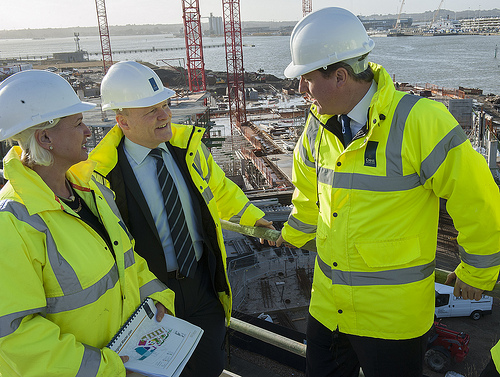Lecturer in Economics, Alan Shipman, explains the balancing act of the UK’s housing crisis and the dilemma of providing enough new homes for a growing population, whilst not pricing out the most needy.
The proportion of British households that own their own home has fallen in the past 10 years, from a peak of 71% in 2003 to 63% last year (2014).
One reason is that homes have become more expensive. Another is that lenders are asking for bigger deposits or down payments. So people are having to wait longer and save up more before they can buy.
Saving up is harder
Saving has also been made more difficult by the slow growth of real incomes. Average earnings growth has been less than 2% a year since the economy started to recover from the 2008 financial crisis, while average house price growth has been over 6%. The national average house now costs £286,000, more than ten times the average starting salary even for graduates.
Saving for deposits is also made more difficult by rising rents – which have gone up in step with house prices. As well as increases in costs of other things that now have to be paid for early in life, especially higher education.
Pressure on pricing
So today’s historically low interest rates are mainly benefiting people who already own their own homes, enabling them to buy others and become buy-to-let landlords. This adds to the upward pressure on price of properties younger households would like to buy.
The government says it wants to tackle the problem by providing more affordable homes. It’s promised 400,000 more of them by 2020, in the Autumn Statement of December 2015. That may sound a lot. But experts say the UK needs to make over 200,000 new homes available per year to keep up with demand, as population and household numbers grow.
Help to buy
So the government’s also offering help on the ‘demand side’, with financial help for first-time buyers. It’s just expanded the Help to Buy scheme, which lets first-time buyers borrow 20% of the price of a new-build home from the government, and 75% on a mortgage, dropping the downpayment to just 5%. There was a 40% rise in new house building after Help-to-buy was introduced.
The government’s also helping people buy existing properties with just a 5% deposit, by offering guarantee mortgages on up to 95%, making these risky loans significantly cheaper. And it’s giving housing-association tenants as well as council tenants a subsidised right-to-buy.
But by adding to demand, before it’s tackled the planning problems and housebuilder capacity constraints that hold back supply, the government fuels the increase in prices.
That may not be unintentional. While it wants younger people to enjoy more affordable homes, it also wants older people – up to half of whom are relying on property as well as pension for retirement – to enjoy the benefits of rising house prices. Older people’s wishes often prevail, because they’re a larger group of voters than their grandchildren.
Help to Buy actually gives the government a direct interest in house price increases. First-time buyers get their help in the form of ‘equity loans’. The amount they pay back to the government increases if house prices rise. And drops if house prices fall. In effect, the Treasury is taking a bet on homes continuing to get more expensive.
Governments are pulled two ways on house prices. As a place to live, it wants them cheaper. But as an investment, it wants them, more expensive. That’s the downside of the UK’s “property-owning democracy.” All political parties promise more affordable homes, but none has found an easy way to deliver them.
Alan Shipman is a lecturer in economics at the Open University. His research interests are personal finance, currently focusing on the disintegration of insurance pools and the disincentives to household saving. Other active interests in: Chinese multinational business; impact of ‘academisation’ on knowledge; social economics; foundations of the market economy.




